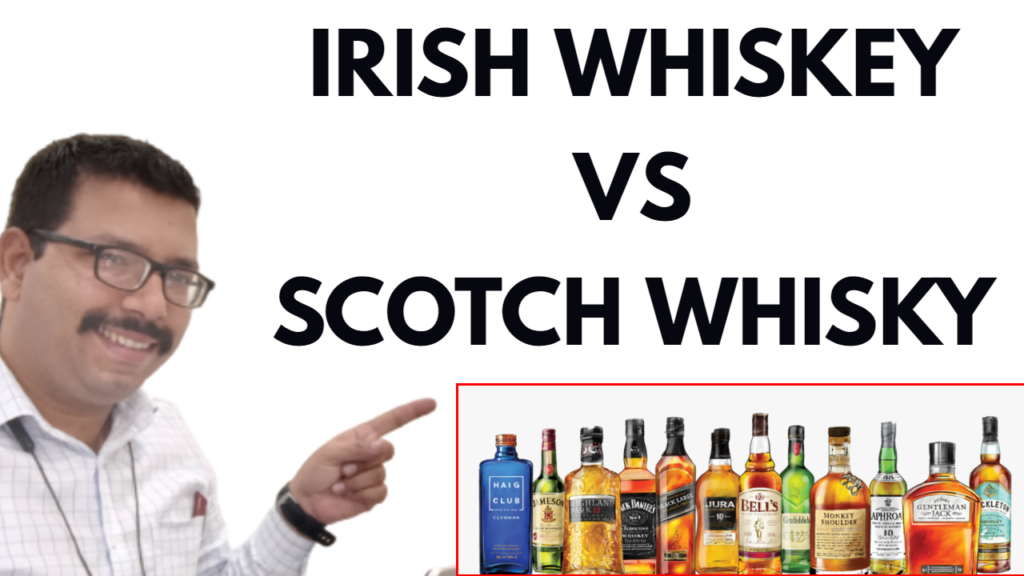
In this Blog, we explore the key differences between Irish Whiskey and Scotch Whisky. Learn about their origins, ingredients, and distinct distillation processes. Discover how Irish Whiskey’s smooth and light flavor contrasts with the complex and robust profile of Scotch Whisky. Whether you’re new to whiskey or a seasoned enthusiast, this video will enhance your appreciation for these iconic spirits. Cheers! 🥃 #IrishWhiskey #ScotchWhisky #WhiskeyTasting #HotelManagementGuru #Spirits #WhiskeyLovers #IrishvsScotch
Difference between Irish Whiskey And Scotch Whisky
Irish whiskey and Scotch whisky are both beloved spirits with rich histories and distinct characteristics. Here are ten key differences between the two:
1. Geographical Origin:
- Irish Whiskey: Produced in Ireland.
- Scotch Whisky: Produced in Scotland.
2. Spelling:
- Irish Whiskey: Spelled with an “e” as “whiskey.”
- Scotch Whisky: Spelled without an “e” as “whisky.”
3. Production Methods:
- Irish Whiskey: Typically distilled three times, resulting in a smoother, lighter spirit.
- Scotch Whisky: Generally distilled twice, giving it a richer and sometimes more robust flavor.
4. Grains Used:
- Irish Whiskey: Often made from a mixture of malted and unmalted barley.
- Scotch Whisky: Made primarily from malted barley, although grain whisky can include other grains like wheat or corn.
5. Peat Usage:
- Irish Whiskey: Rarely uses peat in the drying process, resulting in a cleaner taste without the smoky flavor.
- Scotch Whisky: Many Scotch whiskies, especially those from Islay, use peat during malting, imparting a distinctive smoky flavor.
6. Flavor Profile:
- Irish Whiskey: Generally smoother, with a light, fruity, and slightly sweet flavor profile.
- Scotch Whisky: Can vary widely; single malts often have complex, robust flavors, including notes of smoke, spice, and sometimes a hint of sweetness.
7. Aging Requirements:
- Irish Whiskey: Must be aged for at least three years in wooden casks.
- Scotch Whisky: Also must be aged for a minimum of three years, but often aged much longer, particularly single malts.